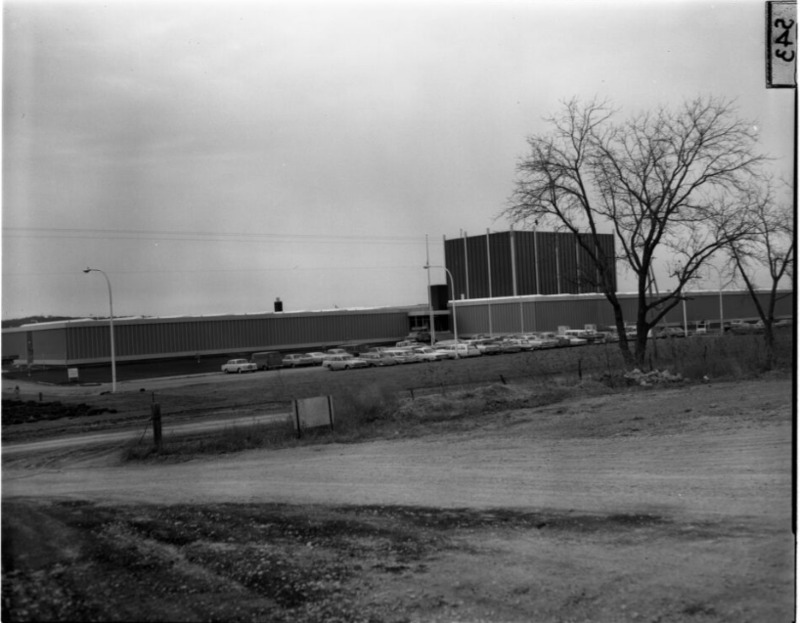Vickers Inc.
Vickers Incorporated was established in 1921 by a Mr. Harry Franklin Vickers, an engineer who sought to make himself a business tycoon through the production of heavy-duty hydraulic equipment for various manufacturing sectors. At 23 years old Vickers began patenting the products produced in his factory, including industrial grade water pumps and water pumping equipment. This facility is located further away from the Omaha downtown area than other included collection items, which was unusual given the high concentration of lead-based industries downtown in the 1920s and 30s. Before leading a successful merger with Sperry Corporation and Remington Rand Inc. to form Sperry Rand, Vickers had amassed ninety five separate product patents that his company was producing. Vickers positioned himself to be the first CEO of the newly formed Sperry Rand company until 1967 (Fletcher, 2019).
The mechanical products that Vickers Inc produced were highly sought-after components by other manufacturers, known for their cutting-edge technology and improvements in mechanical efficiency. Laborers at the Vickers plant were regarded as highly trained industry specialists that consistently produced quality products. The merger including Vickers Inc only proliferated orders for hydraulic pumps across the United States, leading to steady increases in staffing numbers across the twentieth century (Fletcher, 2019).
Vickers Inc contributed to the history of industrial lead in Omaha through the waste products resulting from Vickers brand hydraulic pumps. Seeking to capitalize on the wide applicability of lead, Vickers products utilized lead-acid batteries to operate. Lead-acid batteries were revolutionary inventions when created in 1859, being the first ever successful model of rechargeable batteries (May, 01). These batteries are inexpensive to manufacture, provide a high power-to-weight ratio, and have the ability to supply surge currents which could be used to start machinery. These inexpensive batteries could reliably power every Vickers hydraulic pump with commendable reliability, so the plant saw no reason to deviate from this successful model of production. Indeed, lead-based products were prolific during this era because they allowed for cost-efficient modernization (Fredrickson, 2017).
Lead-acid batteries can pose a significant health risk due to the toxic components within the body of the battery. Each battery could contain between five to thirty pounds of lead contaminants depending on the size of the machinery being powered. If these batteries became compromised and began leaking battery acid, each unit had the potential to vehemently poison human beings (Fletcher, 2019). Health risks from exposure to lead-acid battery contaminants are primarily the developments of brain and kidney damage, and contaminants can permeate through soil into waterbeds or surrounding ecosystems (Fletcher, 2019). Workers at the Vickers plant did not report lead-induced illnesses while employed, suggesting that the company did an adequate job protecting its workers from the occupational hazards associated with industrial lead.
During the remediation efforts conducted by the EPA, the Vickers plant was assessed as a potential remediation site in 1992. After a three year inspection process the EPA designated the factory as an archived Superfund site. This designation specifically includes the suggestion that soil remediation is not recommended for the location or its surroundings. The EPA rationalized this decision due to Vickers not being a site that stored lead-acid batteries (EPA, 1980).
The effects of industrial lead are not seen on the property that manufactured these products, nor in the shops or factories where hydraulic parts were used, but rather in the landfills that housed discarded Vickers pumps. Recycling efforts can be undertaken to mitigate the risks lead-acid batteries pose. Lead-acid batteries are still produced and used in the United States due to being inexpensive and relatively powerful. Vickers brand hydraulic pumps are still in production and are available for consumer purchase through Eaton Hydraulics, which entered a Corrective Action Administrative Order on Consent with the EPA in 1987 over environmental concerns in Joplin Missouri.
